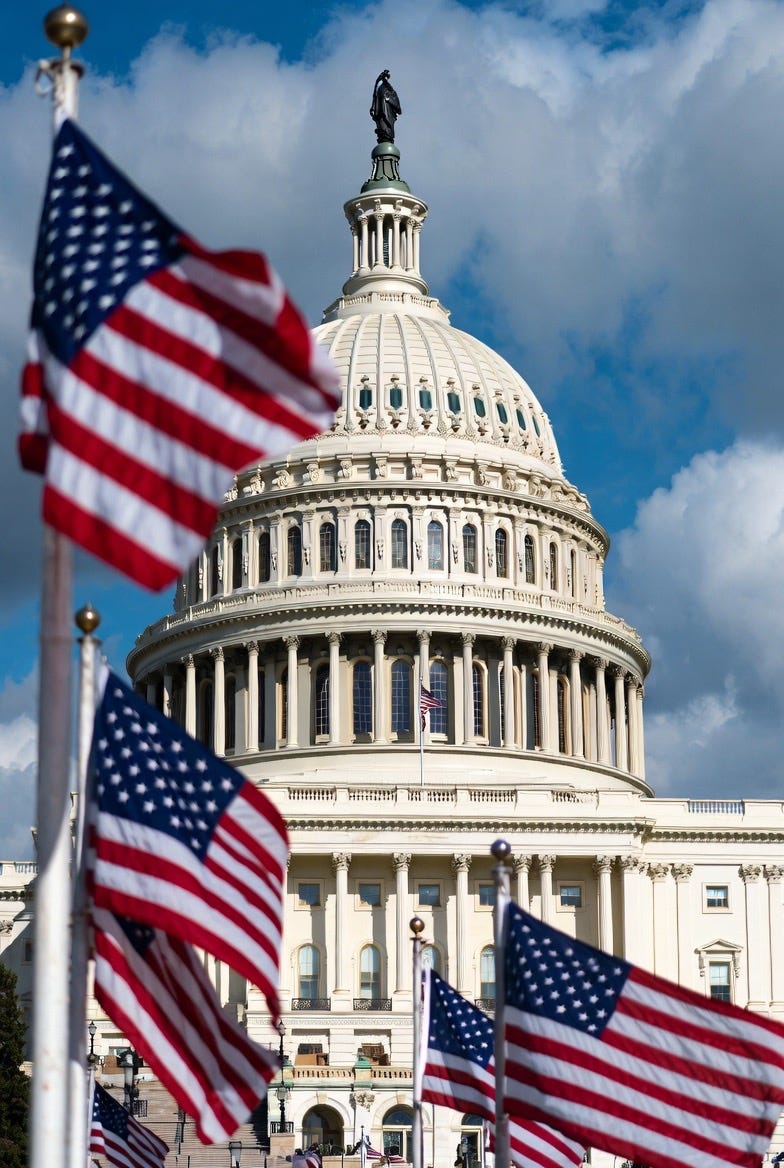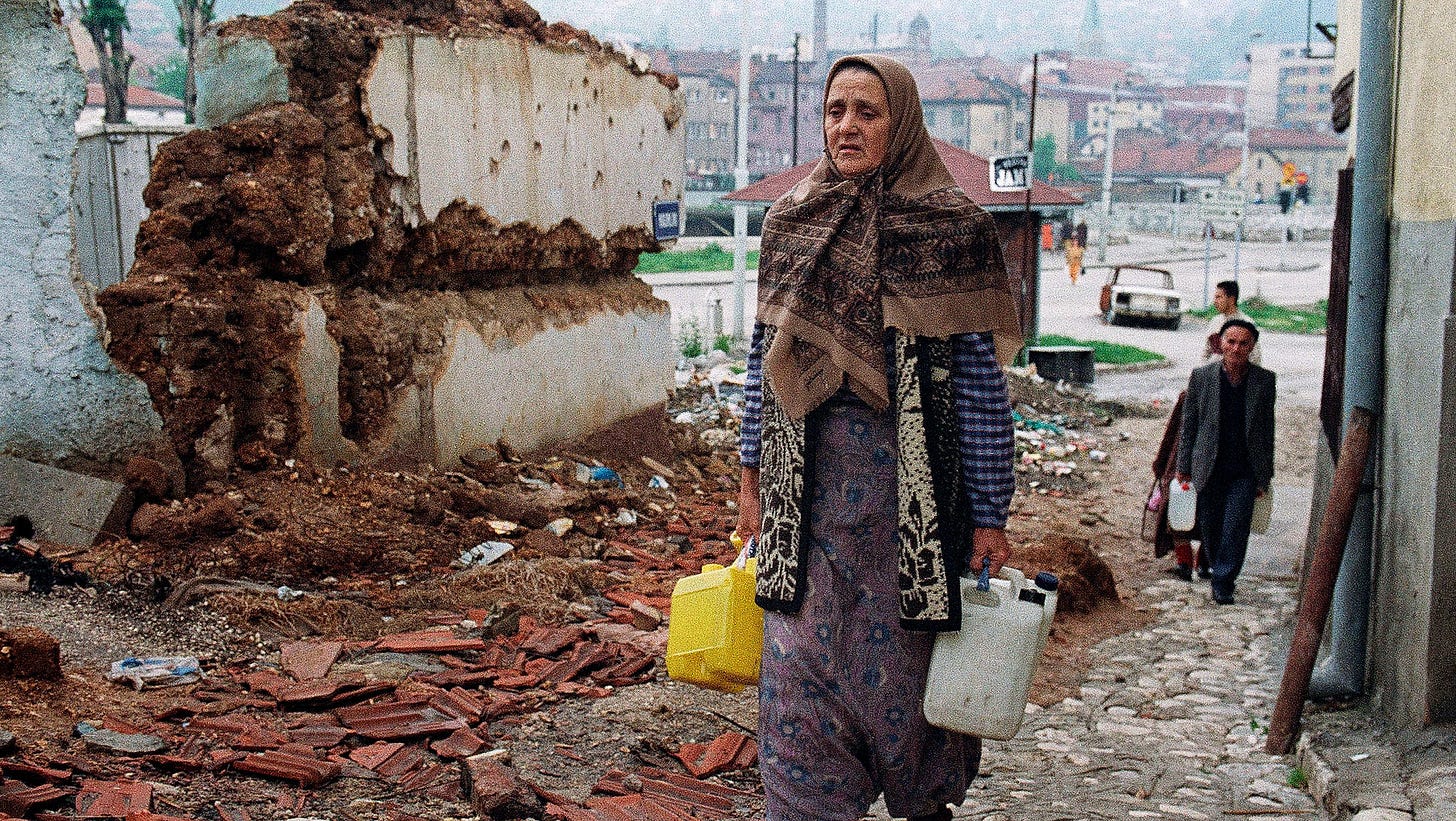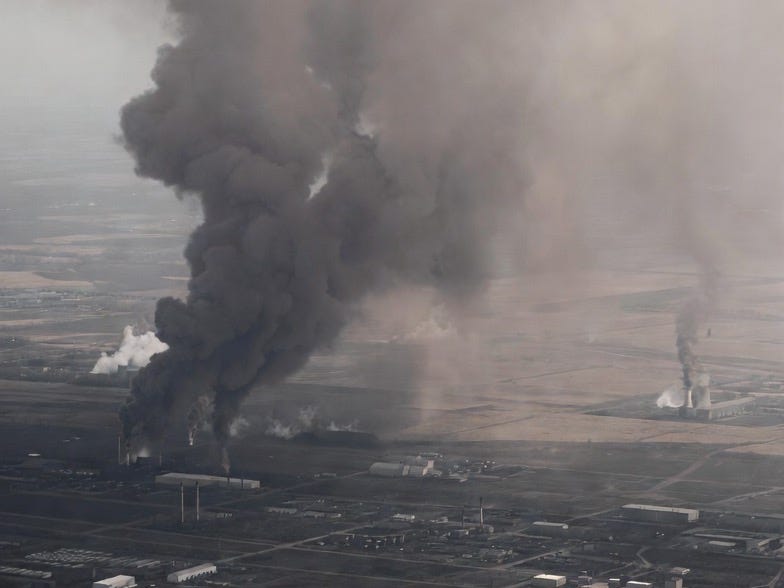10 Things Global News - 13th November 2025
Interesting and important news from around the world
US Shutdown Ends After 43 Days
Grijalva Triggers Vote On Epstein Files
Thai Border Clashes Erupt As Ceasefire Falters
Italy Probes Claims Of ‘Sniper Safaris’ In Bosnia
IAEA Presses Iran Over Unverified Uranium Stocks
Emissions Hit New Global Record
Crisis Deepens After Fall of El Fasher
Israel Condemns Surge In Settler Violence
U.S. Examined Israeli ‘Human Shield’ Discussions
Ukraine Ministers Quit Amid Corruption Inquiry
On this day …
On this day in 2015, Paris suffered the deadliest terrorist assault in modern French history. Coordinated attacks by Islamic State militants targeted the Bataclan concert hall, cafés, and the Stade de France, killing 130 people and injuring hundreds more.
The strikes prompted a nationwide state of emergency, expanded counter-terror powers, and intensified French air operations in Syria and Iraq. Across Europe, governments tightened security & borders as public anxiety deepened.
A decade later, the memory of that night still defines Europe’s uneasy balance between safety, freedom, and tolerance.
President Donald Trump has signed legislation to end the longest government shutdown in US history, hours after the House approved a funding package by 222–209. The deal restores pay for hundreds of thousands of federal workers, restarts food assistance and revives disrupted air-traffic control services. It follows weeks of partisan confrontation, with Democrats angry that the standoff did not secure an extension of expiring health-insurance subsidies.
The agreement, however, only funds the government until 30 January. As a result, both chambers now face renewed fights over healthcare policy, with no promise of a House vote. Meanwhile, federal agencies are beginning the slow process of resuming operations, though some economic data may never be recovered.
The political fallout continues. A Reuters/Ipsos poll shows voters divided over blame, while lawmakers prepare for upcoming battles on healthcare subsidies and the release of unclassified records linked to Jeffrey Epstein.
Sources: Reuters, Axios
Representative Adelita Grijalva has provided the final signature needed to force a House vote on releasing Trump-era investigative files on Jeffrey Epstein. Moments after being sworn in, she signed the discharge petition, accusing Speaker Mike Johnson of delaying her seating to avoid a vote on the matter. Her action obliges the House to take up the measure within a defined window, although Johnson has said he plans to schedule it next week.
The petition draws support from all Democrats and four Republicans, creating a rare bipartisan bloc. However, even if the House approves the measure, the effort faces steep obstacles. In contrast, the Republican-controlled Senate has shown no sign of advancing the issue, and President Trump would be expected to veto any bill requiring full release of the files.
The move comes amid renewed scrutiny of the administration’s handling of the case, including Democrats’ release of emails suggesting Epstein claimed Trump knew more about his abuse than previously acknowledged.
Sources: New York Times, Washington Post
Fresh gunfire has been reported along the Thai-Cambodian border after a landmine blast injured Thai soldiers and prompted Bangkok to pause a recently signed, Trump-backed peace deal. Thai officials said the explosion involved a newly laid device and accused Cambodian troops of firing into Thai territory, saying their own forces returned only warning shots. However, Cambodian authorities alleged that Thai soldiers opened fire on civilians near Prey Chan, reporting several people wounded and one killed.
The truce, signed in Malaysia last month, followed five days of clashes in July that killed 43 people and displaced 300,000. However, the underlying border dispute remains unresolved and, as a result, tensions have quickly resurfaced. Senior Cambodian officials condemned the latest violence, while Thailand insisted the agreement was effectively over before later clarifying that its implementation had been paused.
The incident has halted work on the ceasefire arrangements and left the deal’s future uncertain, with both sides trading blame and no clear mechanism in place to prevent further escalation.
Sources: The Guardian, Bangkok Post
Italian prosecutors have opened an investigation into claims that Italian citizens paid to shoot civilians, including children, in Sarajevo during the Bosnian war. The allegations were filed by journalist Ezio Gavazzeni, who says wealthy foreign visitors paid large sums to fire on citizens from Serb-controlled positions. His file includes testimony from a former Bosnian intelligence officer who says he informed Italy’s SISMI agency in 1993 and was later told that the trips had been stopped. However, British soldiers who served in Sarajevo say they never saw evidence of such activity and describe the idea as an “urban myth”.
The Milan investigation follows renewed interest in the 2022 documentary Sarajevo Safari, which alleges that participants came from several countries. As a result, prosecutors are examining a list of potential witnesses and possible classified SISMI records. Officials in Bosnia have also been aware of similar allegations for decades, although local investigations appear to have stalled.
The case remains open under Italian law, which allows domestic prosecution of citizens accused of grave crimes committed abroad.
Sources: BBC, El País
The International Atomic Energy Agency has warned that it still cannot verify Iran’s stockpile of highly enriched uranium, months after Israeli and US strikes damaged nuclear sites during the 12-day war. A confidential report circulated to member states said inspectors had been unable to access seven affected locations, including Fordo and Natanz, and that accounting for previously declared nuclear material remained “long overdue”. However, the agency confirmed inspectors would visit the Isfahan Nuclear Technology Centre on Wednesday.
Iran suspended cooperation with the IAEA after the conflict but later agreed to resume inspections under a September deal reached in Cairo. In contrast, that agreement halted when the United Nations reimposed sanctions on Tehran, prompting Iran to stop implementation. The report described Iran’s near-bomb-grade uranium stockpile as “a matter of serious concern” and noted that, while some material may have been destroyed in the strikes, much was likely stored at a deeply buried Isfahan site.
The IAEA said obtaining a full picture of Iran’s inventory would be arduous because so far only some of the 13 unaffected facilities have been inspected.
Sources: Reuters, Al Jazeera
Global carbon emissions are projected to reach another record high in 2025, rising 1.1% from last year as countries continue to burn oil, gas and coal. The increase underscores the difficulty of slowing global warming a decade after the Paris Agreement, when nations committed to peak and then sharply reduce emissions. However, China’s output appears to have levelled off after decades of rapid growth, offering a tentative sign of change.
The broader trend remains challenging. While emissions stayed nearly flat in China and Europe, they rose significantly in the United States and across much of the rest of the world. Meanwhile, electricity demand increased sharply this year, but fossil-fuel generation in the power sector may have plateaued as solar grew at record pace. Even so, the Global Carbon Project (GCP) estimates fossil emissions alone will reach 38.1bn tonnes, contributing to a total of 42.2bn tonnes from all human activities.
GCP state that overall, progress has not been enough to halt rising temperatures. As long as emissions grow, warming will continue; and leaders at COP30 warn that current policies leave the world far from a credible path to limiting long-term climate risk.
Sources: BBC, New York Times
Humanitarian agencies warn that conditions in North Darfur are collapsing after the Rapid Support Forces seized El Fasher late last month. The UN’s migration agency says operations are close to failing as warehouses empty, convoys face insecurity and restrictions block aid delivery. Meanwhile, nearly 90,000 people have fled the area through unsafe routes with little access to food, water or medical care, and tens of thousands have arrived at overcrowded displacement camps in Tawila.
The scale of suffering has intensified as agencies report acute hunger and widespread violence. Doctors Without Borders says more than 70% of young children arriving in Tawila in the days after El Fasher’s fall were acutely malnourished, with over a third suffering severe acute malnutrition. However, UN Women describes even more harrowing conditions inside and around the city, where women report starvation, displacement, rape and bombardment. As a result, the UN warns that thousands remain trapped with almost no access to basic services.
The International Criminal Court has now opened an investigation into possible war crimes in the city, drawing on satellite imagery, witness testimonies and on-the-ground reports.
Sources: The Guardian, UN News
Israel’s president and senior military leaders have sharply condemned a new wave of settler attacks in the occupied West Bank, after dozens of masked settlers assaulted the villages of Beit Lid and Deir Sharaf, torching vehicles and property before clashing with soldiers. President Isaac Herzog called the assaults “shocking and serious,” saying the violence committed by a “handful” of perpetrators “crosses a red line.”
Military commanders echoed his warning; the army’s chief of staff said such acts “tarnish a law-abiding public” and divert resources from core security missions. However, police said three of the four Israelis arrested were released, with one minor remaining in custody on suspicion of arson and assault.
Meanwhile, the U.N. reported more than 260 settler attacks in October alone — the highest monthly figure since 2006. Residents of Beit Lid said the violence is eroding their sense of safety, with some describing the attacks as fully organised.
Sources: Associated Press, Politico
U.S. intelligence gathered in the final weeks of former President Joe Biden’s administration included internal Israeli discussions about sending Palestinians into Gaza tunnels believed to be lined with explosives, according to two former U.S. officials. The information was shared with the White House and analysed by the intelligence community. International law prohibits the use of civilians as human shields.
The Israeli army says it bans coercing civilians in military operations and has opened investigations into suspicions involving Palestinians in military missions.
Meanwhile, U.S. officials examined whether the material showed broader policy guidance. Government lawyers ultimately concluded the intelligence described individual incidents rather than a systematic practice, allowing continued military and intelligence support.
Sources: Al Jazeera, Reuters
Ukraine’s justice and energy ministers have resigned after President Volodymyr Zelensky said they “could not remain in their positions” during a major corruption investigation in the nuclear energy sector. His call came hours after Justice Minister German Galushchenko was suspended, signalling the severity of an alleged kickback scheme involving Energoatom contracts.
Soon after Zelensky’s intervention, Prime Minister Yulia Svyrydenko confirmed that both Galushchenko and Energy Minister Svitlana Grynchuk had submitted their resignations for parliamentary approval. Meanwhile, Ukraine’s anti-corruption agencies said their probe — code-named “Midas” — had uncovered about $100 million in illicit payments. However, prosecutors have not named the ministers as suspects, and Galushchenko said he supports suspension while the investigation proceeds.
In contrast, officials warned that the revelations point to long-running networks of corruption, while Kyiv’s partners are watching closely. Zelensky said the issue was a “matter of trust,” noting that the country is already under strain from Russian strikes that have caused rolling blackouts.















